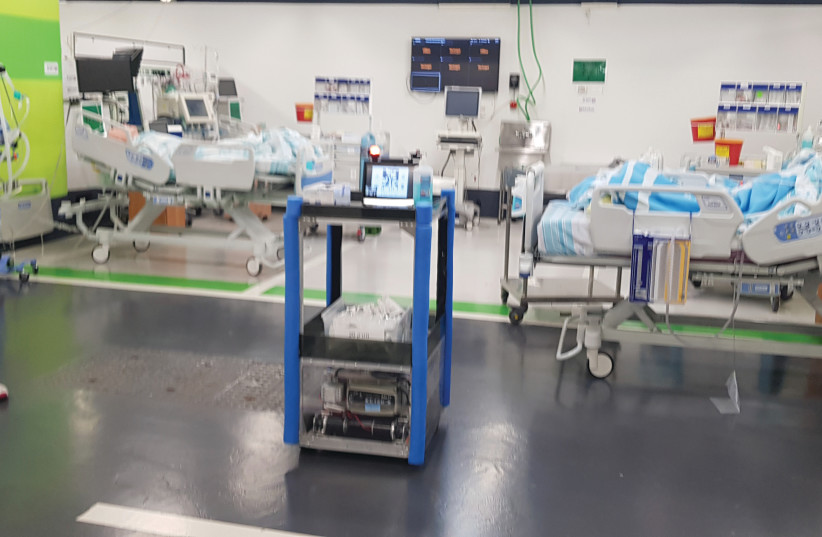Rambam Health Care Campus will be the first hospital in Israel to roll out a smart 5G network and network-integrated application at the end of the month. The medical center is working with Elbit and one of its spin-off companies, Synch, to make it happen.
Synch will enable medical personnel to connect instantly with their peers in an emergency and for their routine work. It will also convert any cellular device, including their cellular phones, into a “Walkie-Talkie” and allow them to push to talk in collaboration groups. The app also includes secure chatting and messaging opportunities and multimedia and video transmission.
Rambam began working with Elbit during COVID-19, a spokesperson for the hospital told The Jerusalem Post.
“The company took over the huge underground COVID department with more than 160 patients and dozens of doctors and nurses, and they then took a military-grade system and turned it into a hospital system,” David Ratner said. “This was the basis for the collaboration between Elbit and us, and it proved very good during COVID.
“In this case, they decided to do this kind of start-up or experiment with more advanced things that we could use at least some of them – like this one, that we’ll be ready for at the end of the month,” he said.

Ratner added that while there have been some drills, “there is no doctor yet who can talk about using” the system in practical terms. Nonetheless, he believes that the app will revolutionize how the hospital cares for patients, especially in emergencies.
Rambam has 1,000 beds and serves a diverse population in the north of the country, including being the main referral hospital for 12 district hospitals and defense and international peacekeeping forces stationed in the region.
The Israel Innovation Authority and the Ministry of Communications are partially funding the implementation of the advanced 5G network. Pelephone provides an advanced 5G network. Rambam’s IT department integrated the system into the hospital’s electronic patient record. The command-and-control capability came from Elbit Systems.
Specifically, the Synch app leverages floLIVE 5G core network technology. Among its features are push-to-talk, voice recognition, and keyword detection. It can also detect and allocate resources based on emergency keywords used in communications among ER teams.
“Many people do not know this, but 5G networks enable diverting bandwidth to specific users or areas according to need,” explained Synch Product Manager Guy Halamish. “This can help ensure that key stakeholders have access to the network even when resources are limited.”
He noted the deadly crowd crush at Mount Meron in 2021 when dozens of people were killed or injured. The networks collapsed while tens of thousands of visitors tried to evacuate or contact their loved ones.
“Everyone there was trying to use the networks needed for the rescue forces. With this new system, it could be enabled,” Halamish said.
Perhaps most importantly, the app will increase effective collaboration among medical personnel, which is often challenging in hospitals, especially in critical situations. Furthermore, with a simple bar code scan, approved collaborators can communicate with each other and get quick access to patient data and medical history via their electronic patient records.
But will it be secure?
According to the cyber security company Check Point, there was a 60% increase in attacks against healthcare organizations in 2022 compared to 2021 and one in 42 healthcare organizations was also the victim of a ransomware attack last year.
But Halamish said security is “at the highest level” because the system started at military grade. He explained that Synch was originally an Elbit department and was recently spun off to commercialize this 5G technology for the civilian population.
“It is all fully secured,” he stressed. “The system is absolutely safe.”
